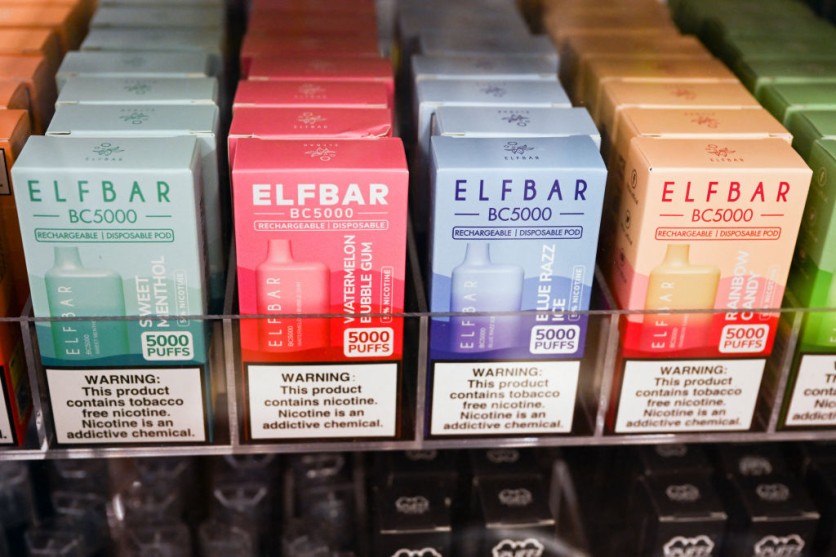United States authorities have seized more than 1.4 million illegal e-cigarettes, valued at $18 million, from foreign manufacturers, including the Chinese company behind the popular Elf Bar brand, known for fruity disposable vapes among American teens.
According to the Food and Drug Administration (FDA), the seizure involved several related brands, including Elf Bar, Lost Mary, Funky Republic, and EB Create.
The FDA and US Customs and Border Protection conducted a joint operation at Los Angeles International Airport in July to intercept the deliberately mislabeled shipment, as reported by US News & World Report. Agency records indicate that this is the initial occurrence in which the organization has been effectively thwarted in its endeavor to import vapes into the United States.
Popular E-Cigarette Brand Among US Youth
The products, responsible for hundreds of millions in sales since late 2021, faced a ban in May when the FDA directed customs officials to seize shipments from iMiracle Shenzhen and other involved companies. The seized products are set to be destroyed, according to the FDA. Brian King, the FDA's tobacco chief, warned against smuggling illegal e-cigarettes, especially those appealing to youth. Despite an import ban on some products, iMiracle rebranded under names like EB Design.

E-cigarette products, including Elf Bar, remain widely available in US convenience stores and vape shops. Federal data indicate that 56% of vaping adolescents reported using Elf Bar, a rate that is more than double that of any other e-cigarette brand, as reported in a recent government survey. A representative of iMiracle failed to provide an immediate response when asked about a statement on the matter.
WHO Calls for Immediate Action Against e-Cigarettes
The World Health Organization (WHO) urged authorities to address the significant increase in youth e-cigarette use, underscoring the risks. According to UPI, the WHO noted that despite intensive marketing and serious health repercussions, e-cigarettes have not been proven to help populations stop tobacco smoking.
According to UN Health Organization statistics, 13-15-year-olds now smoke electronic cigarettes more than adults in all WHO areas. Electronic cigarette usage among 16-19-year-old Canadians quadrupled from 2017 to 2022. To protect public health, the WHO proposes banning flavored e-cigarettes and emphasizes continual monitoring, surveillance, and strict enforcement.
Additionally, the WHO has repeatedly warned about vaping's health dangers, such as "toxic substances, some of which are known to cause cancer and some that increase the risk of heart and lung disorders" and may disrupt brain development and cause learning difficulties. Additionally, vaping during pregnancy may have adverse effects on prenatal development and "poses risks to bystanders." This supports the global health organization's criticism of tobacco as "profiting from the destruction of health."
Ruediger Krech, WHO Director for Health Promotion, warned that there is an "alarming" rise of e-cigarette usage among children and youngsters "with rates exceeding adult use in many countries."
Forbes reported that Juul Labs, an e-cigarette manufacturer, settled in April for $462 million to address accusations that it had distributed its products to underage consumers in six states across the United States. The e-cigarette firm made payments exceeding $1 billion to 45 states under the agreement despite its lack of admission of fault.
Related Article : Lithium-ion Batteries in Disposable Vape Pens Raise Environmental Concerns with Surprising High-Performance

ⓒ 2025 TECHTIMES.com All rights reserved. Do not reproduce without permission.




